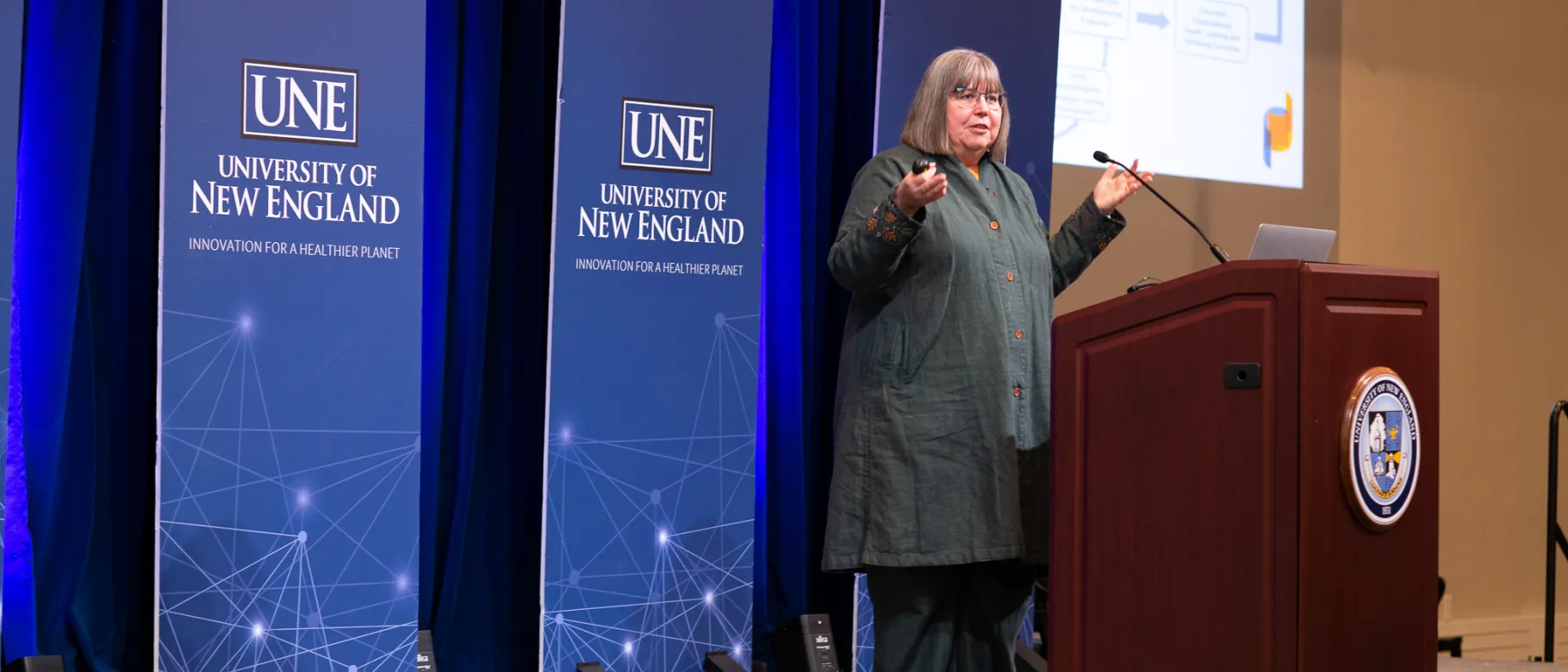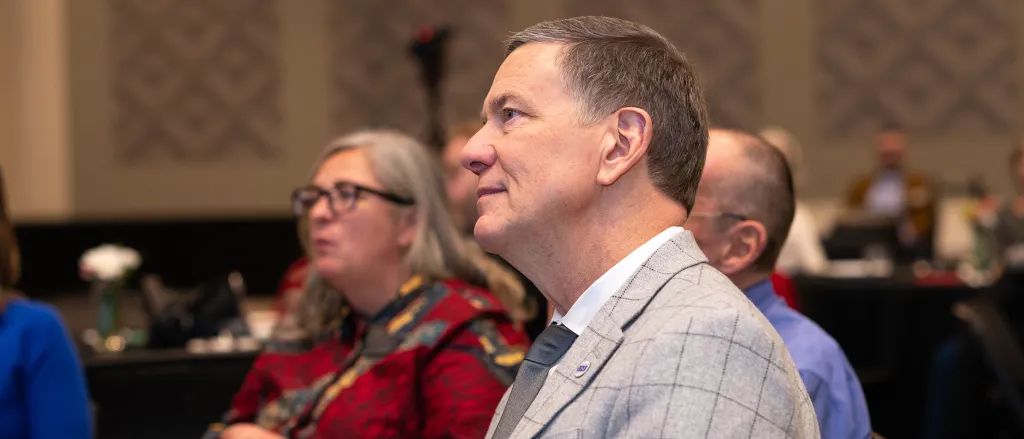UNE ‘poised to be national leaders in interprofessional education,’ national expert says

Members of Maine’s health care and education communities gathered at the University of New England’s Portland Campus for Health Sciences in mid-December to hear from a national expert and advocate about the importance of integrating interprofessional education (IPE), which promotes team-based collaborative practice, into clinical learning to improve the quality of patients’ health outcomes.
At the event, Christine Arenson, M.D., director of the National Center for Interprofessional Practice and Education, addressed why interprofessional teamwork is a foundational tool to combat crises facing health care in the U. S. today, like workforce shortages, increased violence against staff, and provider burnout.
“Business as usual isn’t working,” Arenson said, noting that UNE and its Center to Advance Interprofessional Education and Practice — the host of the talk — is poised to be a national leader in this effort.
“This university, I would say, is the national leader in how we engage patients and community members in educating our students, and helping them to really practice patient-centered care,” she said.

UNE President James Herbert, Ph.D. (foreground) and Provost Gwendolyn Mahon, M.Sc., Ph.D. (background), listen to national interprofessional education expert Christine Arenson, M.D., about the importance of promoting team-based collaborative practice among health care providers.
The push to advance IPE in health education began in the early 2000s when a series of reports cited a lack of communication and collaboration between providers as key reasons for increased medical errors and decreased quality of healthcare in the United States. In the wake of those reports, many universities, UNE included, began initiatives to advance IPE in curriculums.
“Our call at the national center is to work at changing our underlying ideology and culture that crosses professional and institutional borders,” Arenson said, adding that the COVID-19 pandemic forced healthcare systems to rapidly change, opening the door for newer, more adaptable team-based practice models.
“This is a moment in time when we must be reflective in how we’re educating current and future practitioners to affect workforce change,” she said before asking, “Are we ready to question our beliefs?”
Arenson concluded by encouraging those in attendance to make stronger connections between practice and education by engaging with their colleagues.
“The people in this room can help address this. Effective interprofessional teamwork may be one of our strongest levers to pull to address the workforce crisis,” she said.